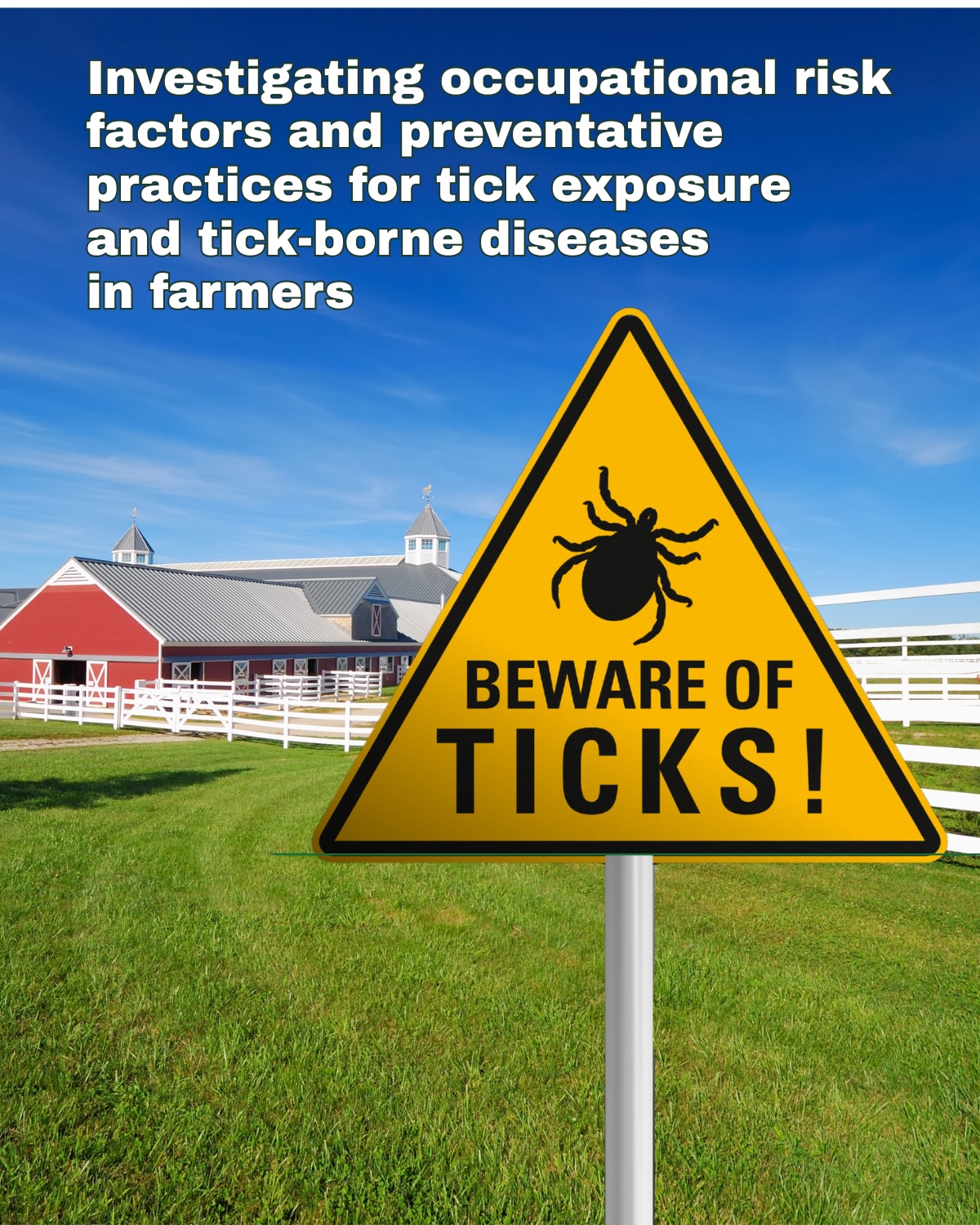Breadcrumb
Agricultural Community and Tick Exposure (ACTE) Project

The CDC reported this year 2025 as the highest in documented tick encounters in the last five years. This increase in tick encounters is concerning, as ticks can spread numerous tick-borne diseases (TBDs), including Lyme disease, with recent estimates suggesting that approximately 476,000 people may be diagnosed and treated for Lyme disease each year in the United States. Agriculture workers have a higher risk of tick encounters than the general public and are considered one of the occupational groups most frequently affected by TBDs, even compared to other outdoor workers. Compounding this threat, farmers may lack information about TBD risk to themselves and their families, which can curtail the routine use of protective behaviors. Understanding occupational and lifestyle factors that drive TBD prevalence, risk perceptions, and protective behaviors, particularly from areas with increasing tick prevalence such as the Midwest, may be useful for planning future interventions. However, it is essential that any future interventions be designed with input from stakeholders and perceived as effective by target groups, as perceived feasibility is directly tied to uptake. As such, there is a critical need to characterize risk factors, as well as perceived risk, for tick encounters and TBDs in farmers, in order to develop feasible prevention methods to help farmers minimize their risk.
The proposed project aims to identify occupational risk factors for tick exposure and tick-borne diseases in Iowa farmers, as well as capture knowledge, attitudes, and practices on perceived risk and prevention strategies. A key aspect of this proposed research is collaboration with community advocacy groups to consult on the study design, the data collection and interpretation, and our dissemination plan. As climate change is increasing the prevalence of ticks and tick-borne disease, this pilot project is a first step in a research continuum that seeks to develop effective and feasible interventions to protect farmers. The project is expected to have important positive impacts on farmers’ health by understanding, and eventually minimizing, the risk of a growing occupational threat through community partnerships.
Are you a farmer or other agriculture worker and want to learn more or contribute to this work?
Are you a scientist or student who wants to become involved in this study?
Email Dr. Kathryn Dalton at kathryn-dalton@uiowa.edu to learn more.